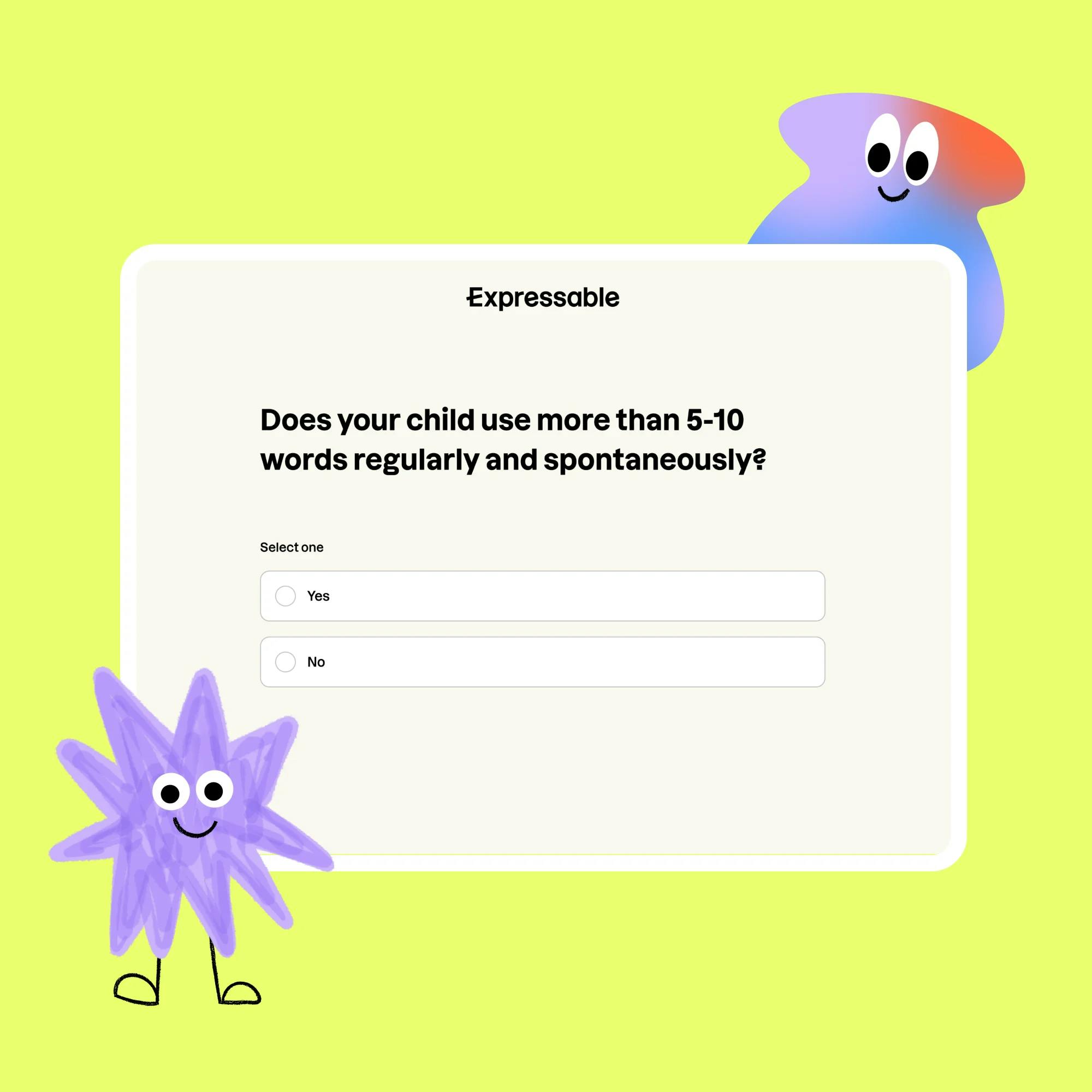
How to Tell if Your Child Has a Speech Delay
 Leanne Sherred, M.S., CCC-SLP
Leanne Sherred, M.S., CCC-SLP
Parents and caregivers often ask the question “What’s normal?” when it comes to their child’s speech and language development.
Truth be told, determining whether your toddler or preschooler is just a "late bloomer" or needs professional help isn’t always easy. All children progress at different rates, and there is a wide range of what’s considered “normal.”
However, the American Speech-Language-Hearing Association (ASHA) shares these 3 common signs for children between the ages of 18 and 30 months that may put them at risk for a speech or language delay.


3 signs of a speech delay
1 Trouble understanding language
Many children are able to understand basic commands and language before they begin using actual words. If your child seems to be receptive to language--for example, pointing to objects when you name them, or following simple instructions--they're more likely to catch up to their peers. However, if you think your child isn't able to grasp what others are saying, there is a chance that their comprehension is behind. Given that children must understand language before they can use it, this would be likely to lead to a delay.


2 Not using gestures
Even if your child isn’t speaking yet, actively using gestures is a good sign they're simply a late bloomer. Gestures can include things like:
Waving “hi"
Pointing to food or an item they want
Raising their arms so you'll pick them up
If your child is not using gestures, there’s a higher likelihood they could have a communication problem.
3 Not learning or using new words
Between ages 18 and 30 months, toddlers should be progressing in their language development by regularly using new words. They should also be starting to string words together to make simple phrases or ask questions.
Even if your child is slower to talk than their peers, using gestures is a good sign they’re on the right path. However, if you don’t hear new words often, this may be a sign of a speech or language delay.
You can learn more about expected developmental milestones for toddlers and preschoolers in our articles covering 1-year-olds, 2-year-olds, and 3-year-olds.


What should you do if you think your child has a speech delay?
Research in speech and language disorders has shown that the earlier speech therapy begins, the better the outcomes. If you think your child may be struggling, consider scheduling an evaluation with a speech-language pathologist, also known as a speech therapist.
A speech therapist is best equipped to evaluate your child, discuss any questions or concerns you have, and provide professional guidance on whether your child should be enrolled in an early intervention program to receive speech therapy. Helping your child learn to communicate clearly and confidently will have a positive effect on their social, academic, and emotional development.












